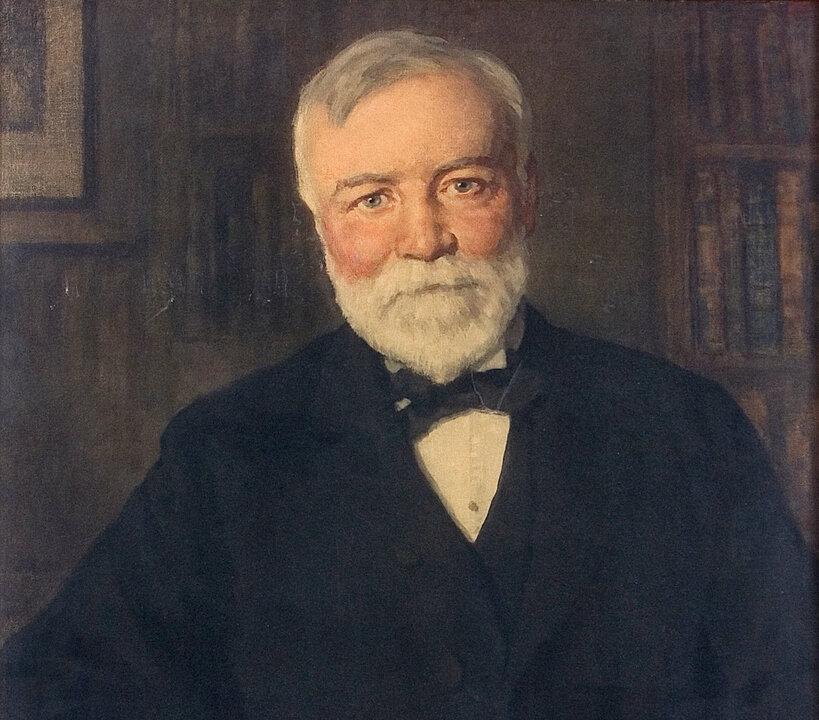Although a great man who lost his path by giving away 90% of his wealth away needlessly to people who had not put in a day of work in order to actually merit it, Carnegie was undoubtedly a person whose life and times still plays an absolutely decisive example of a tough grind type of rags to riches story.
Still this type of narrative still makes most people cringe, and unfortunately they are the ones who find his philanthropy the most commendable part of his life, when in fact it was the labor he had to go through to amass his wealth, and rise above his peers. The reason why this might be, I do not know, but we definitely need to ask ourselves one thing: What is truly more worthy to be referred to as an accomplishment? The man who goes through unthinkable pains to achieve his success, or the one who sacrifices himself for the good of others because society deems it necessary?
And that is exactly what the problem is, it is because society deems it absolutely necessary that we sacrifice ourselves for others, while not caring for our own good first, which in turn creates more dependency than those who believe that are entitled to things which they have not earned, or will not even put in the time to actually merit. Carnegie of all people knew that he was not entitled to anything as a man which is why he rose to become one of America’s most respected businessmen.
Poverty drove the Carnegie family from Scotland where economic downturn and lack of opportunity forced hundreds of thousands to immigrate to the promises of the United States. From a young age Carnegie began to show endurance, as he excelled as a telegrapher for the Ohio Telegraph Company, and moved his way up to become one of the most successful men by setting up the famous Carnegie Steel Company, which he sold to J.P Morgan in 1901 for a fortune.
Yet Carnegie did not get to become a man of great riches just merely through luck, but he worked without end to achieve his goal of dominating American steel. Perhaps his own source of inspiration was his family’s poverty in Scotland and early on in the U.S. His mother sold handmade objects at the front door of their house, and did the laundry for menial wages. His father whose passivity towards life angered Carnegie, had made him believe that in order to succeed he needed to become a go-getter.
He had promised his mother early on that he would hire her own private carriage one day. Well when the day came at the height of his wealth, not only had he hired the most illustrious carriage, but he had organized a grand parade for their return to their hometown, Dunfermline, in Scotland. They had left as paupers, and they had come back as royalty.
The proponents of Carnegie’s philanthropy however overlook one very important aspect. What if all the libraries, community centres, music halls and so on were built by Carnegie at a profit. What if for a nominal fee, the public could enjoy the delights of books, concerts and other cultural events? If this was the case would it not also have been the case that all of these venues could have provided even more better services and products, more books, and more shows. And while you might say well most people could not afford to pay the fees if there were any. Well sure, yet many of them could have if they did not spend their after-work hours in pubs.
Every time you mention this to someone who fervently sits on the collectivist side, they immediately bring up the issue of the Homestead crisis, which was handled rather harshly by Carnegie. Yet, the best rebuff is to say although those men were receiving very small wages, they were not kept there. They had the voluntary choice to move away from Homestead and find new employment. Carnegie in his own right was giving men wages that were legally defined, although they were small, again no one was kept there by force. In fact it was the ruthlessness of the trade unions that had caused most of the strife that the mill workers had experienced.
The ultimate point is that a man makes his own way in this world, and to actually believe that to squander your riches away is the moral thing to do is to undermine the most basic universal human right: independence. Imagine what Carnegie could have achieved if he had reinvested that 90% of his wealth in building a new company similar to Carnegie Steel to become even a bigger manufacturer and supplier of raw materials at even lower prices. Here is a question to ponder on: What really changed the world and led to long lasting impacts for people in the United States, Carnegie Steel or Carnegie libraries?
I am one of those who staunchly believe that a man and woman must create his/her own way in life, and not expect to be given handy downs without merit and without work. For doing so would be the ultimate rejection of one’s self-dignity, and individual integrity. No one, and nothing will ever come to your door and give you anything, which is why you must go out and get it yourself. If there is one thing that we need to take from Carnegie it is that.




